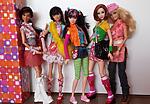The audiobook industry is starting to undergo dramatic shifts in their content delivery methods and major publishing companies are now investing millions of dollars into expensive productions. The entire audiobook industry is currently worth around 1.6 billion dollars and that figure should climb further. The main reason? Audio book producers have been increasing their output. 13,255 titles came out in 2012, up from 4,602 in 2009.
The main reason audiobooks are starting to appeal to more readers is because of the sheer amount of mobile devices and tablets available. It was not too long ago that you had to purchase an audio edition on CD and Cassette. You would often have to pay $60 to $100 for a fairly good audio edition and now the prices have plummeted to under $40. Currently, digital audiobooks now account for over 60% of all purchases made. “Everybody has an audio book player in their pocket at this point,” says Anthony Goff, vice president of Hachette Audio, where sales have jumped by 31% this spring over last. “It makes that much easier for the masses to try it.”
“It’s one of the few times in history that technology has reinvigorated an art form rather than crushing it,” said Max Brooks, author of the zombie novel “World War Z,” which was released in May ahead of the Brad Pitt movie in an elaborate new audio edition with 40 cast members, including Alan Alda, John Turturro, and Martin Scorsese. It sold 60,000 CDs and digital-audio copies. “Now, because there is such demand and the production value is so inexpensive, it opens the door for more creative storytelling.” he said.
The most dominant content distribution platform for audiobooks currently is Amazon owned Audible. This company has the highest market penetration and has seen a 33% increase in sales in 2012. They have created over 26,000 audiobooks and adding close to 1,000 titles a month. Most of their success derives from their new technologies that allow readers a myriad of options. If you purchase both the audiobook and eBook you can have the book professionally narrated to you, as you are reading. Else, you can read a few chapters on your Kindle and pick up exactly where you left off on the audio edition. This type of synergy is fairly compelling for people who read at night and do things during the day. Matthew Thornton of Audible commented – “We’re seeing heavy growth among younger listeners, people in and getting out of college who are part of the emerging app culture.”
The creation of audiobooks are not only reserved for major publishing companies, but many others provide some low-cost options to get going. Audible offers the most expansive creation suite of tools for authors to get massive distribution and gain solid royalties. Indie companies are also making it easy for authors to create their own audiobooks. The most notable are www.acx.com and www.voices123.com who drive down the cost of audiobook production.
Audiobooks are normally synonymous with being a mirrored replica of the print edition. This is starting to shift, as publishers are starting to experiment with audio exclusive content. The Wall Street Journal recently talked a company called AudioGo, whom has produced about 25 works exclusively for audio, including “Baseball Forever,” a remix of radio broadcasts of some of the top moments in the history of baseball. One of their most successful is a property entitled “Dreadtime Stories,” a collection of original horror stories, and a series of apocalyptic zombie stories. They have also resurrected old fashioned radio plays and hired actor Val Kilmer to play Zorro in an audio dramatization titled “The Mark of Zorro.”
Audiobook consumption is certainly increasing and many pundits are debating on how this may adversely effect the way we consume literature. Print purists doubt that listening to a book while multitasking delivers the same experience as sitting down and silently reading. Scientific studies have repeatedly shown that for competent readers, there is virtually no difference between listening to a story and reading it.
There are a few unknown factors when it comes to multitasking, while listening to an audiobook. People who commute to work make up nearly 1/2 of all audiobook listeners and studies are still ongoing on how much is retained with not having 100% focus. Daniel Willingham, a psychology professor at the University of Virginia who has studied reading and listening comprehension, said that multitasking compromises a listener’s attention, unless the task is truly automatic. Jogging on a treadmill would probably be fine, but running on a trail might be too distracting to fully absorb the text, he said.
In the end, the audiobook industry is enjoying a boom period and is consistently increasing their market share. Customers have gravitated to digital downloads, instead of tangible goods. More companies are offering professional services to assist indie authors with getting an audio edition of their book out there and Audible continues to dominate the sales channels. Stay tunes for our next feature, as we look into the best companies out there to help indie authors get an audiobook made for them.
Michael Kozlowski is the editor-in-chief at Good e-Reader and has written about audiobooks and e-readers for the past fifteen years. Newspapers and websites such as the CBC, CNET, Engadget, Huffington Post and the New York Times have picked up his articles. He Lives in Vancouver, British Columbia, Canada.





